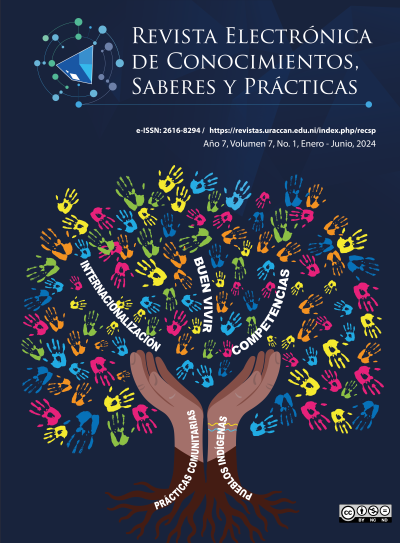ChatGPT in education
DOI:
https://doi.org/10.5377/recsp.v7i1.19345Keywords:
ChatGPT, education, artificial intelligenceAbstract
The advancement of artificial intelligence (AI) is transforming the educational field, particularly with the introduction of language models like ChatGPT. Given the growing interest in this technology, it is crucial to examine its implications from various educational perspectives. The objective of this article is to raise awareness about its use and analyze empirical evidence from other studies regarding ChatGPT's ability to address educational tasks while maintaining academic integrity. A systematic literature review was conducted following the PRISMA methodology, analyzing 57 documents from databases such as ESBCO, ERIC, INTECHOPEN, Elibro, and SCIELO (2022–2023). The results suggest that ChatGPT can be beneficial in areas such as teacher training, online tutoring, curriculum design, and assistance with academic tasks, provided it is used ethically and with integrity. In conclusion, although ChatGPT is a valuable tool for educational support, its responsible and supervised use is essential to prevent malpractice such as plagiarism. This bibliographic review contributes to understanding the role of ChatGPT in education, highlighting both its benefits and its ethical and practical challenges, and providing a foundation for future research and decisions regarding the use of AI in the educational field.
Downloads
954
resumen.mp3 (Español (España)) 100
abstract.mp3 (Español (España)) 111
Published
How to Cite
Issue
Section
License

This work is licensed under a Creative Commons Attribution-NonCommercial-NoDerivatives 4.0 International License.
At the moment in which a work is accepted for publication, it is understood that the author gives the Electronic Magazine of Knowledge and Practice (RECSP) exclusive rights of reproduction, distribution and sale of his manuscript for exploitation in all countries of the world in paper magazine format, as well as in any other magnetic, optical and digital media. The authors will also transfer to RECSP the rights of public communication for its dissemination and exploitation through Intranets, Internet and any wireless portals and devices decided by the publisher, by making available to users for online consultation of its content and its extract. , for printing on paper and / or for downloading and filing, all in the terms and conditions that appear on the website where the work is housed. In turn, the RECSP authorizes the authors of the works published in the journal to offer a copy of these works once published on their personal webs or in any open access repository. Together with this copy, a specific mention of the RECSP must be included, citing the year and the number of the journal in which the article or research note was published and adding, in addition, the link to the RECSP website.

